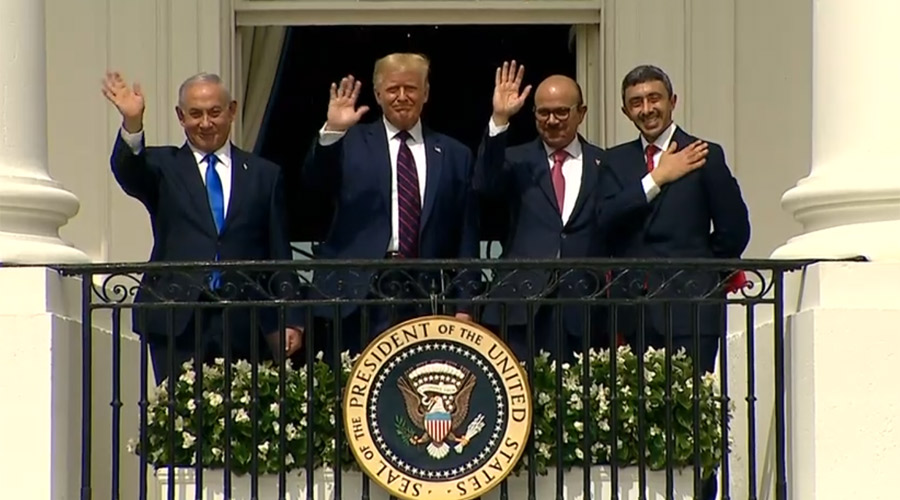In March 2018, Israeli prime minister Benjamin Netanyahu delivered a speech in Washington DC at the annual conference of pro-Israel lobby group the American Israel Public Affairs Committee.
While in the city he went out for dinner with his wife, Sara, at Cafe Milano, a Georgetown restaurant well-known as a dining spot for top administration officials. Coincidentally, the ambassador of the United Arab Emirates, Yousef al-Otaiba, was also dining there that night, with the Bahraini ambassador and a few senior Trump administration officials. Having served in Washington since 2008, Otaiba had developed close relations with many officials, including the Israeli ambassador Ron Dermer.
According to the then New York Times White House correspondent Mark Landler, one of Otaiba’s dinner guests made contact with Netanyahu, who probably thought it was an opportunity that should not be missed. He and Sara went over to Otaiba’s table. A short chat ensued, during which Netanyahu emphasised that Israel and the UAE had reasons to strengthen their relations against their mutual Iranian enemy.
In June 2020, when the idea of annexing part of the West Bank was floating in Israeli political circles following Donald Trump’s “deal of the century”, Otaiba published an article in the popular Israeli daily Yedioth Ahronoth. Titled “Annexation or Normalisation”, the article noted that many Arabs “would like to believe Israel is an opportunity, not an enemy. We face too many common dangers and see the great potential of warmer ties.” Seeing this as a hint, the Trump administration seized the moment. Last August, the US president made a dramatic announcement about the establishment of diplomatic relations between Israel and the UAE. Less than a month later, Bahrain followed suit.
Read the article by Elie Podeh in The Australian.

